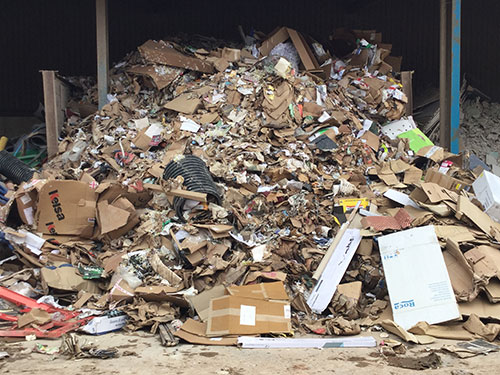The things people wrongly assume they can recycle
As a nation, we are now more aware about the damage that we are causing to our planet through the use and disposal of plastic waste.
We are all encouraged to recycle as much as possible but we are still increasingly confused about the types of things that can be recycled. Especially when it comes to plastics.
Here at EMS we want to make things as clear as possible for our customers in Exeter and surrounding areas.
Confusion surrounding plastic recycling
A recent poll published by the Guardian newspaper unearthed just how confused us Britons are about plastic recycling and recycling in general.
The poll found that most of us believe that we can recycle plastics, such as plastic soap dispenser tops, and other items such as used kitchen roll and even wrapping paper. When in fact, none of these things can be recycled in our general household waste bins!
Although eight out of 10 of us now believe that recycling makes a huge difference to the environment, we are still confused about what we can and cannot recycle.
This is simply due to a lack of misunderstanding and misinformation. Ultimately, what this results in is more harm to our planet.
When it comes to recycling on a larger scale we can make things simple for you.
We’ve made a list to help clarify things.
When hiring a skip from EMS you are also hiring our extensive knowledge and expertise.
If there’s something not listed that you’d like to include in your skip please give one of our experts a call. We’re always available to help.
What can be recycled?
Cardboard recycling – Egg boxes, cereal boxes, toilet roll tubes etc
Glass recycling –glass bottles, jars, Windows, Windscreens
Plastic recycling – HDPE(drainage piping/road barriers), LDPE, Farm Plastic, UPVC Window Frames, PET Bags etc
Wood – Palets, off cuts and all general wood waste
Metal – Ferrous and non ferrous
Garden and Green waste – Grass cuttings, leaves and weeds, Christmas trees etc
Inert Waste – Soil and stone
What needs to be done?
Education and information are key, as well as clear and informative packaging.
All plastic packaging should clearly state if it can be recycled, and if not, where it is best placed after use.
Local councils can also play a huge role in alerting people to the relevant information about what items can be recycled, and where they can be recycled.
What is truly shocking is that 79 percent of all plastic waste is still with us, as we are unable to recycle and reuse this type of plastic.
The very clear message here is that so much more needs to be done to ensure that, eventually, we are able to recycle all plastic waste.
To learn more about our designated plastic waste collection and all other recycling services, then please do browse our website or call the office for more information.


Recent Comments